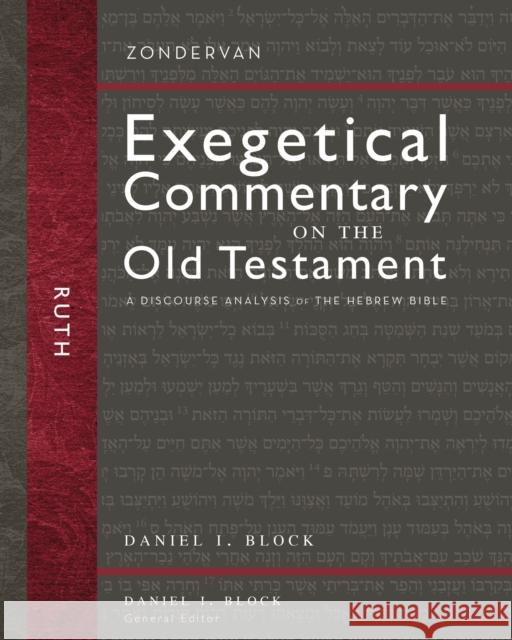Ruth: A Discourse Analysis of the Hebrew Bible 8 » książka
Ruth: A Discourse Analysis of the Hebrew Bible 8
ISBN-13: 9780310282983 / Angielski / Twarda / 2015 / 304 str.
The Zondervan Exegetical Commentary on the Old Testament serves pastors and teachers by providing them with a careful analysis and interpretation of the biblical text, rooted in a study of the Hebrew text of the Old Testament and intended to track the flow of the argument in each book and passage. Key Features of the Series In our effort to serve pastors and teachers in their study of the text of the Old Testament for ministry, Zondervan has developed a set of distinctive features for this series. A Graphical Display of the Text of Each Passage This visual "thought flow" of the passage will enable the reader to grasp quickly and accurately the main idea of the text, its development, and supporting ideas. For readability, the graphical display will be done in the commentator's own English translation of the passage. A few paragraphs of discussion following this display will seek to enable the reader to understand how the commentator arrived at this depiction and interpretation of the passage. Identification and Discussion of the Main Idea of Each Passage Special emphasis will be placed on identifying and discussing the main thrust of each passage and showing how it contributes to the development of the whole composition. The main idea will be illustrated in the graphical display, discussed in the introduction to the passage, and reflected upon in the Theological and Canonical Significance section of the commentary. Help in Drawing Out the Meaning of the Hebrew for Interpretation The goal of this exegetical commentary series will be to draw on Hebrew grammar in the service of meaning. Hebrew will not be discussed for the sake of better understanding Hebrew alone. Whenever a Hebrew construction affects the interpretation of the text, this feature will be discussed and explained. Theological and Canonical Significance This portion of the commentary will focus on providing a theological and applicational discussion of the main thrust of the passage. This section will build the theological discussion on the exegesis of the text by synthesizing the theology of the passage and elaborating on it.











